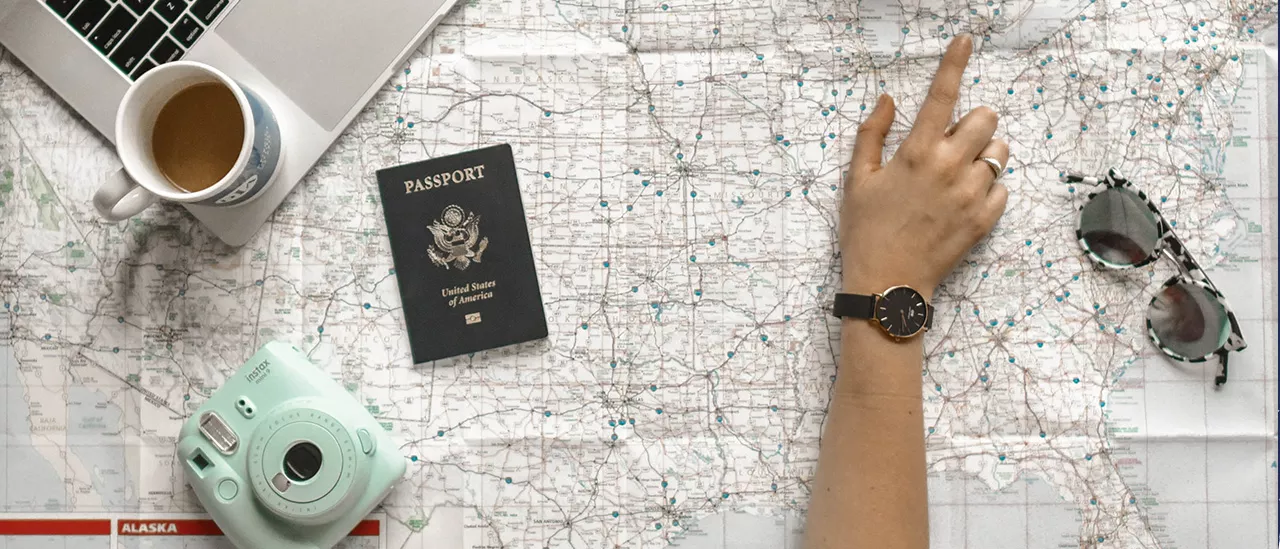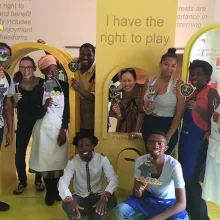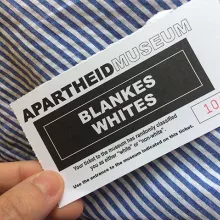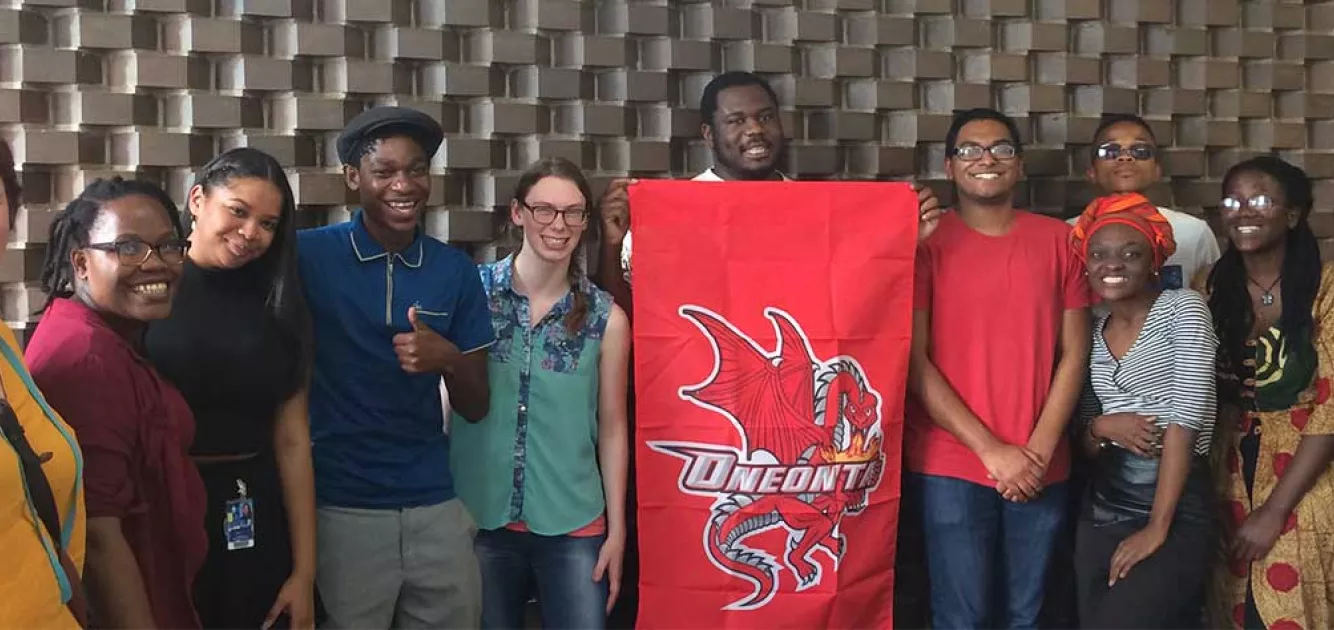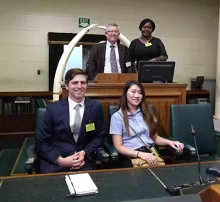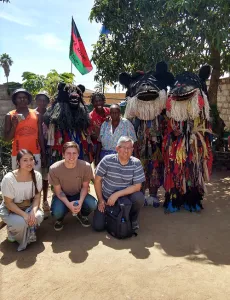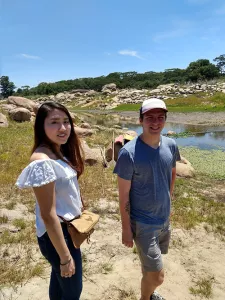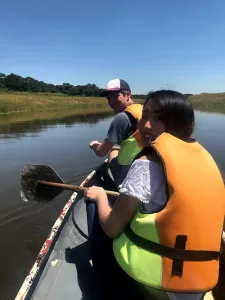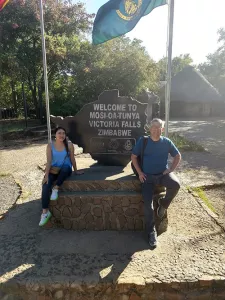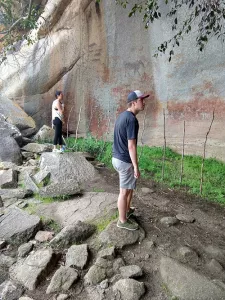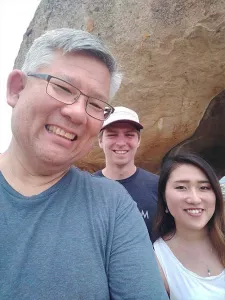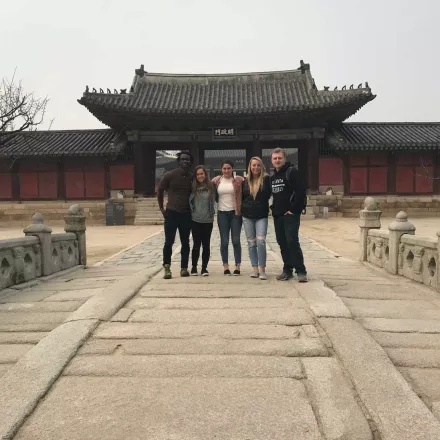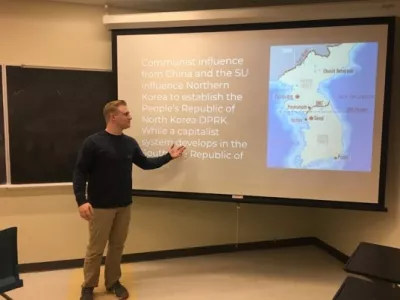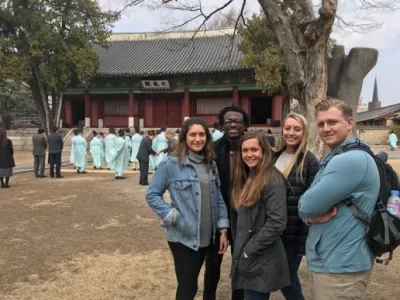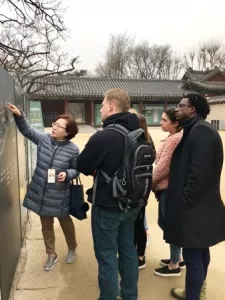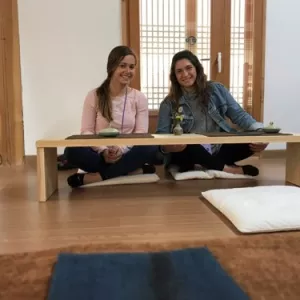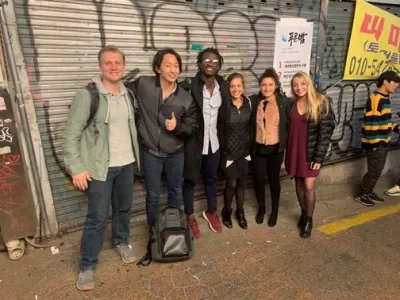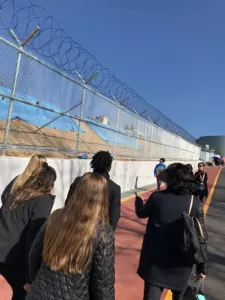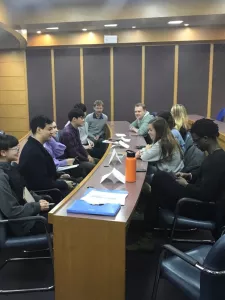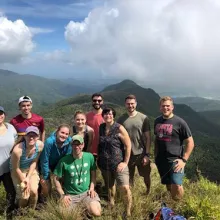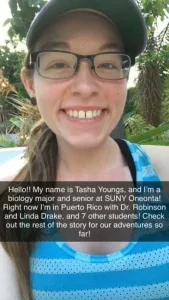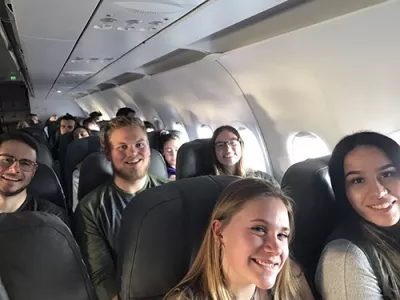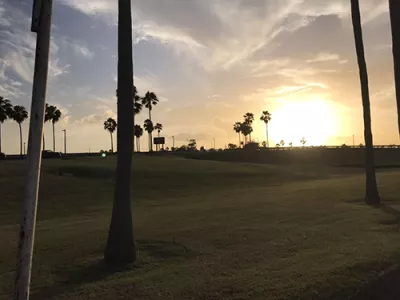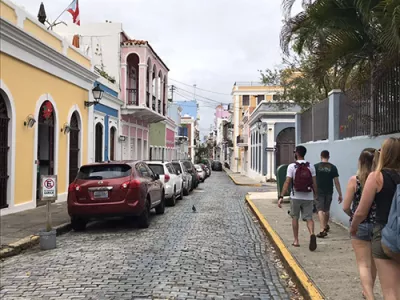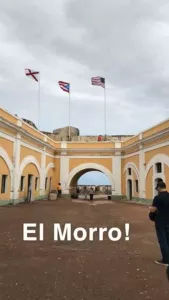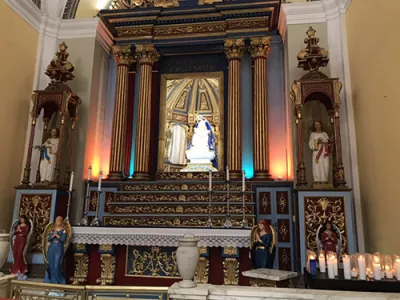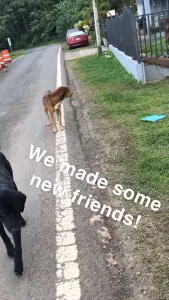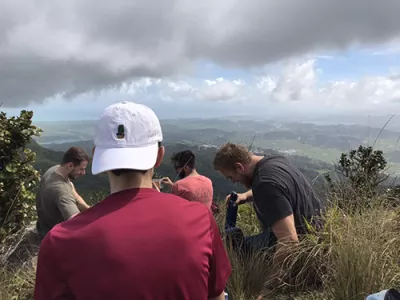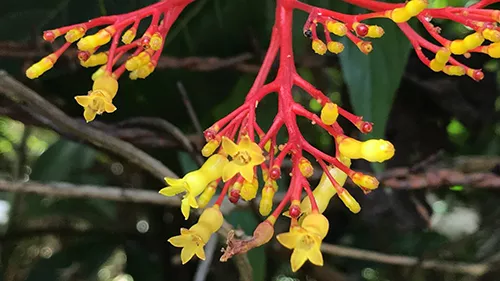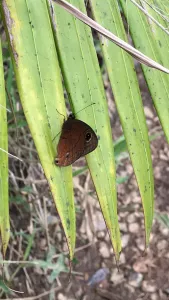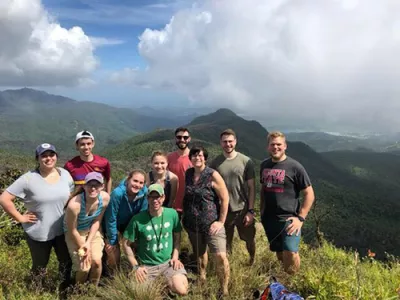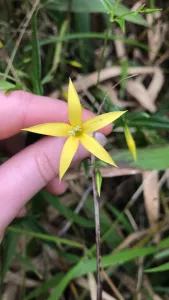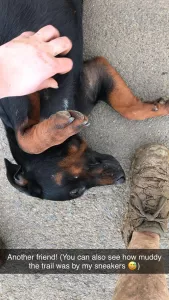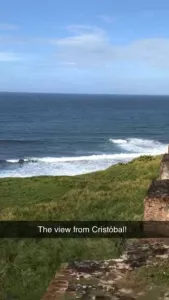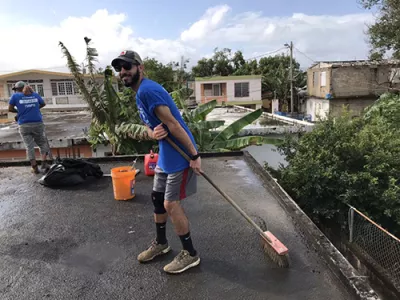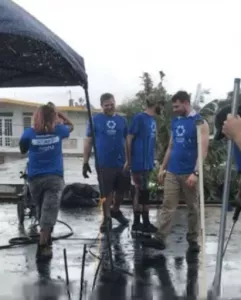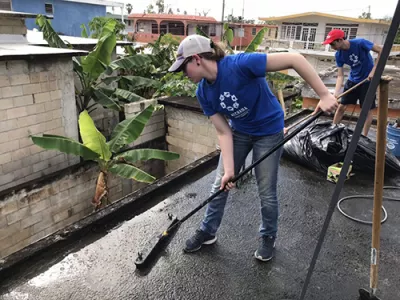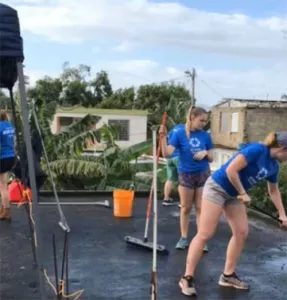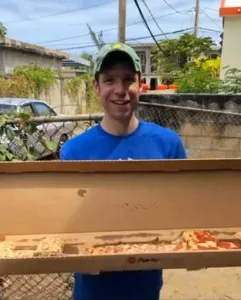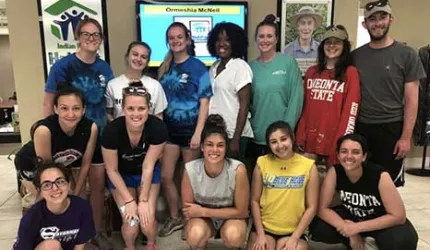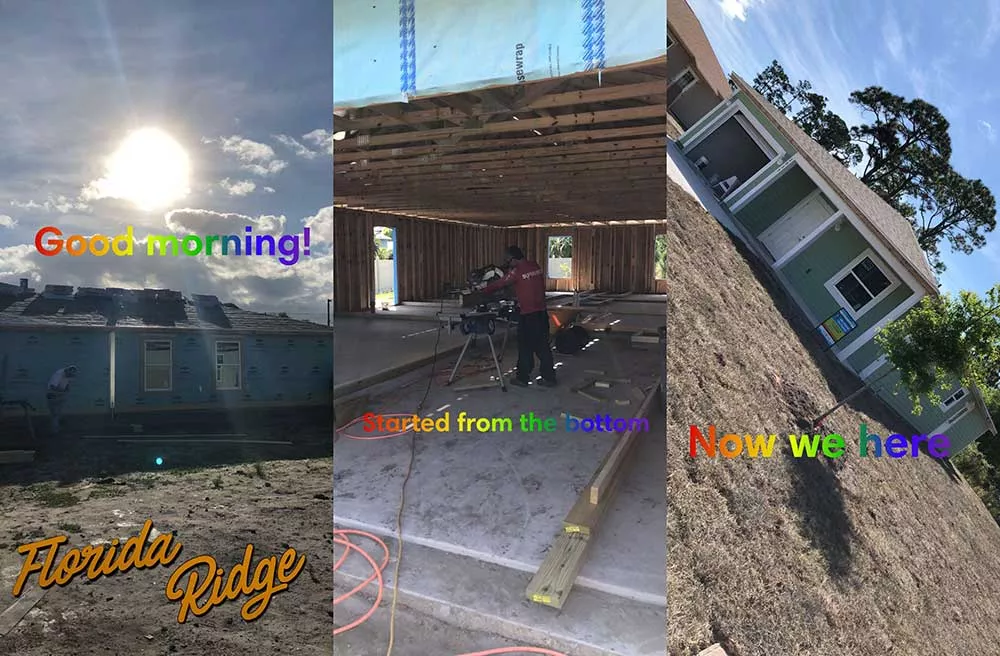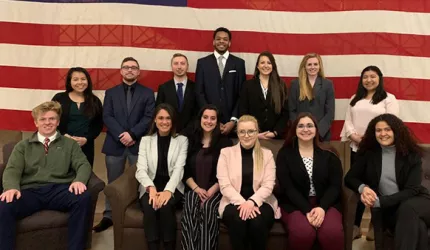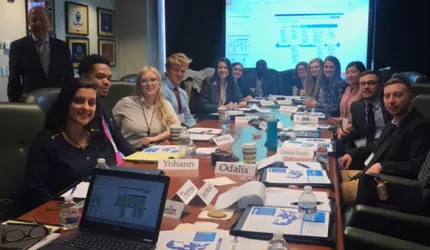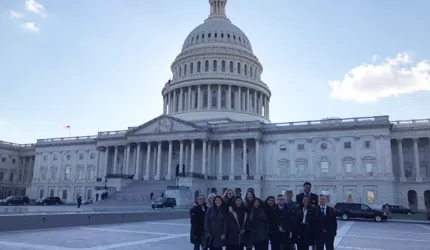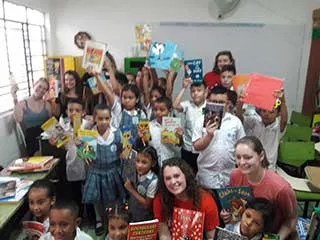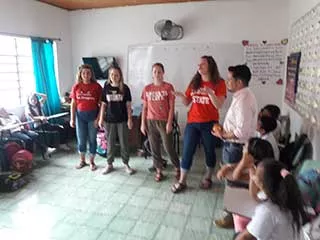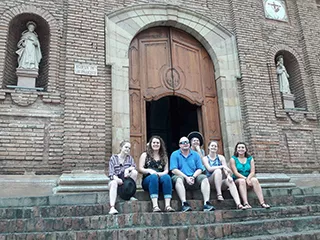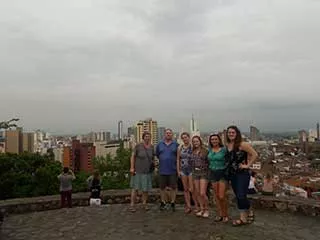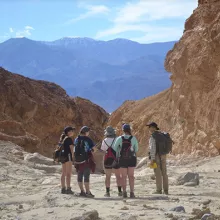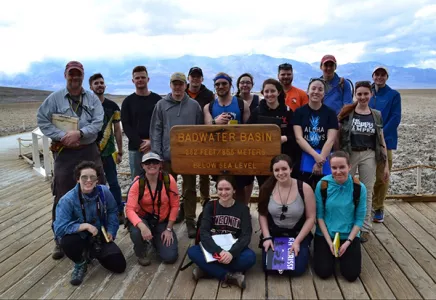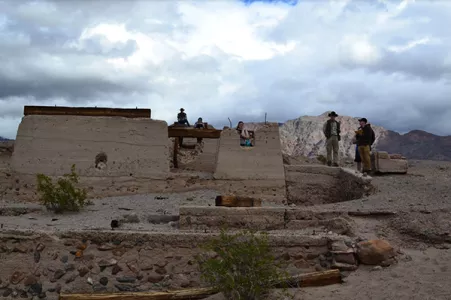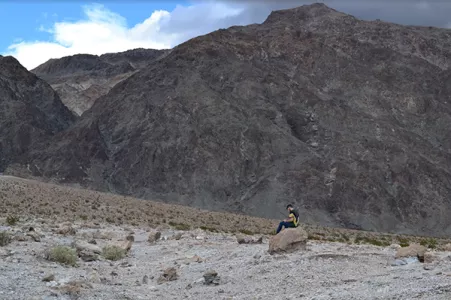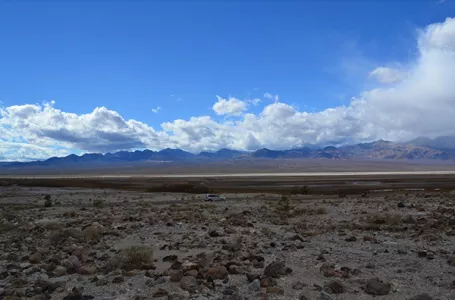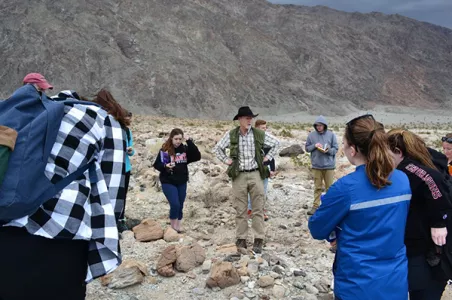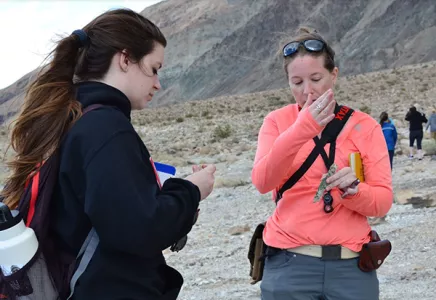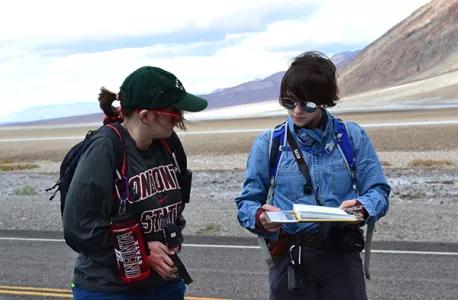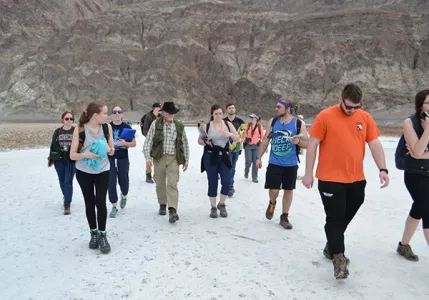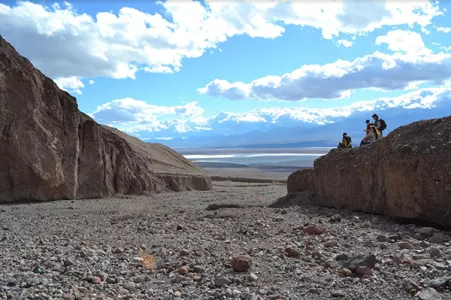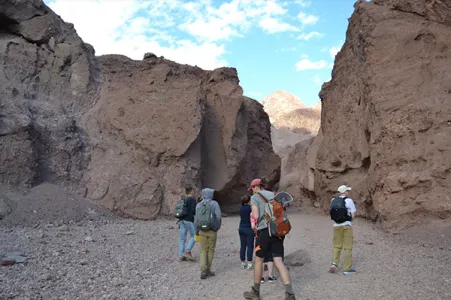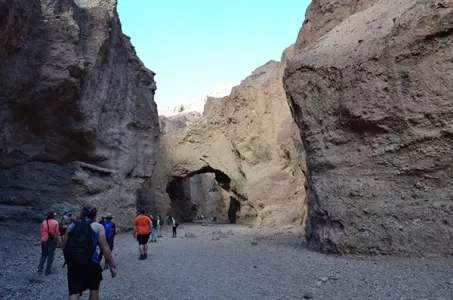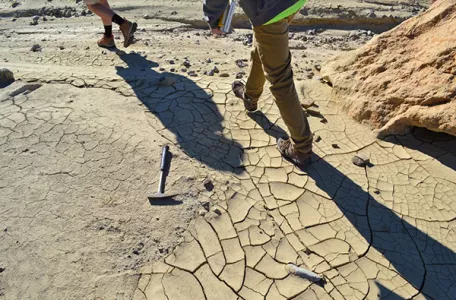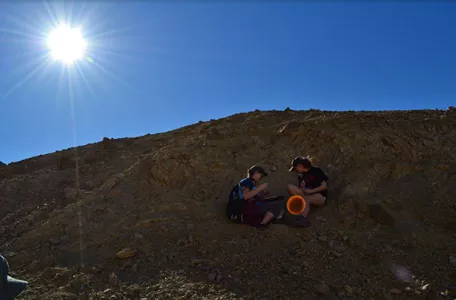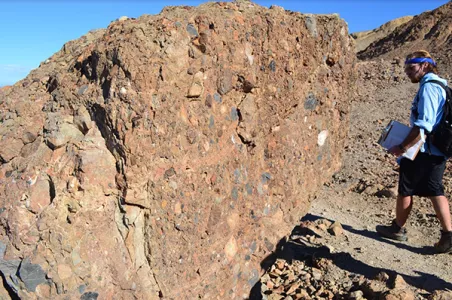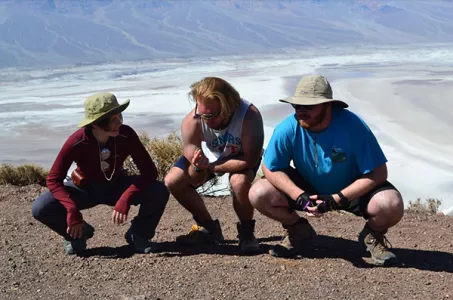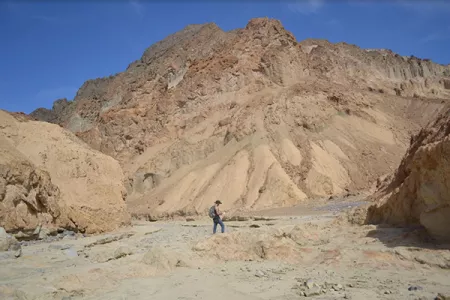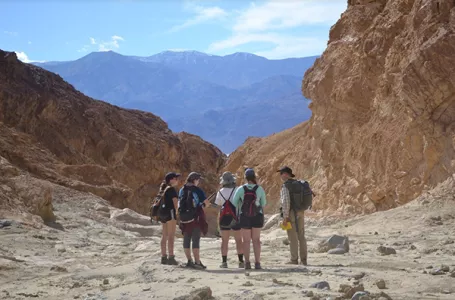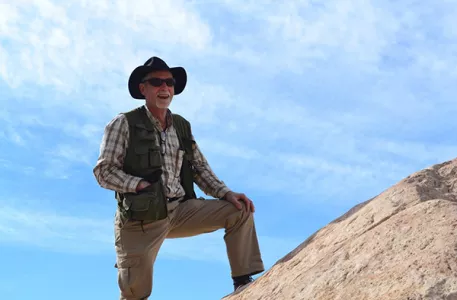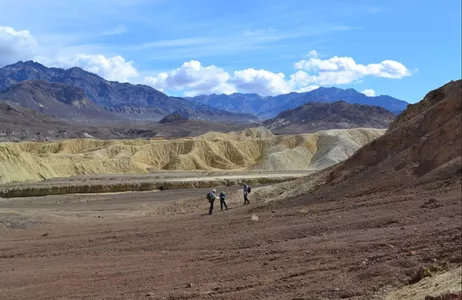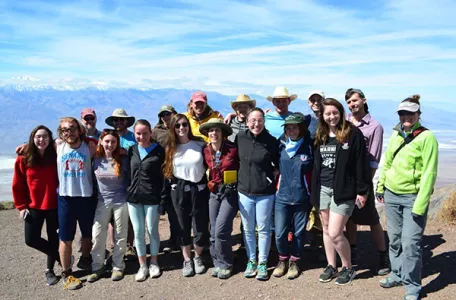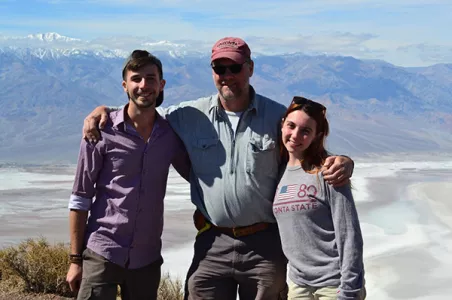Forget lying on the beach during spring break. Sixty-four SUNY Oneonta students participated in trips last week that took them across the world and back. Some were purely educational, one focused on networking, others were service-based, and several incorporated a little of each. Wherever the destination and whatever the focus, the trips sought to broaden students’ perspectives, increase student engagement, strengthen student-faculty research and creative activities, and promote and support global connectedness at SUNY Oneonta.
South Africa
Four art students traveled to South Africa with Lecturer Pearlie Baluyut for a week of academic and cultural exchange with students at the University of the Witwatersrand in Johannesburg, where Nelson Mandela once studied.
Working closely with Wits University students and host faculty member Dr. Alison Kearney, SUNY Oneonta students were able to develop a greater understanding of identity politics, social justice and human rights through art and creative research and applied-service learning activities at the Wits University, Wits Art Museum and Play Africa, a non-profit community organization that serves families and children from disadvantaged backgrounds.
A standout moment was a trip to the Apartheid Museum, where students learned about the tragic and triumphant history of South Africa and its people through dynamic exhibitions featuring videos, photographs, paintings and other objects. They also went on a behind-the-scene curatorial tour of Constitution Hill (the court, prison cells and art gallery).
Baluyut said the trip “provided the students with a critical and humbling view of a global landscape filled with lessons and opportunities.”
“With first-hand knowledge and an unforgettable international experience, the American and South African students are in a better position to serve as advocates of mutual cooperation and catalysts of global (ex)change to ensure a kinder future for themselves and the generations to come.”
Zimbabwe
In nearby Zimbabwe, two seniors, accompanied by Professor of Political Science Robert Compton, were busy learning the political development and political economy of the country and the difficulties of non-governmental organizations, or NGOs, operating under unstable socio-economic conditions.
The students met with and received briefings from a large array of groups including Parliament staff and elected national legislators, the Southern African Parliamentary Support Trust, the Clerk of Parliament, the National Association of NGOs, the University of Zimbabwe and the U.S. Embassy. At the opposition Movement for Democratic Change (MDC) offices, the students saw the after-effects of riots at the offices, which included shattered windows and the charred markings of a fire bomb.
The small group also did some sightseeing, visiting Heroes Acre and Domboshawa Park (one large granite formation for miles and miles); took a tour of Mbare high-density suburbs; visited Victoria Falls from the Zimbabwe and Zambia sides; and enjoyed a sunset on a Zambezi River cruise. They also visited the Mbizi Game Reserve and the famous Hwange National Wildlife Reserve, where they saw zebras, bushbucks, hippos, baboons, giraffes, elands and elephants.
Despite experiencing electoral conflict, violence and a declining peacetime economy, the students found that Zimbabweans were hospitable, friendly and hopeful for the future.
South Korea
Five students traveled to Seoul, South Korea, for a short-term cultural immersion program called "The Philosophies of Peace" that let them explore philosophical, cultural, social, religious and historical aspects of the notion of peace.
Under the direction of philosophy Lecturer Daniel Patrone, the students visited numerous museums, temples, governmental offices and markets. They developed a deeper understanding of Korean history, culture and philosophy by attending contemporary theatre productions, traditional Korean dance performances, musical performances, religious rituals and philosophy classes.
Highlights included visiting Confucian temples; meeting with monks at a Buddhist temple; touring The Korean Demilitarized Zone and learning about the history and current political situation involving North and South Korea; and speaking with a North Korean defector about life in North Korea, her experiences defecting, and the prospects of a stable and lasting peace in the region.
In concert with the college’s partnering institution there, students also visited Sungkyunkwan University to meet with students and faculty and attend philosophy classes with their Korean peers. In the evening, students from SKKU hosted SUNY Oneonta students at a traditional Korean barbecue for a chance to learn more about each other and develop new friendships.
“My trip to South Korea was a once-in-a-lifetime opportunity. I enjoyed fully immersing myself in the culture, which helped me learn a lot about the country and about myself. The beautiful city of Seoul was captivating, and the experiences I had exploring the city will be memories that I will never forget.”
Anna Korniak, Biology, Class of 2020
Puerto Rico
Eight students traveled to San Juan, Puerto Rico, to continue Hurricane Maria cleanup efforts through NECHAMA, a volunteer-driven nonprofit. The students cleaned, swept, hammered, painted, worked on roofs and more to help improve the area. They were accompanied by Associate Professor of Biology Sean Robinson and Center for Social Responsibility and Community Director Linda Drake. They stayed in an Airbnb with other NECHAMA volunteers, got to see the lush flora and fauna of the island, went on some very muddy hikes, and did some sightseeing in Old San Juan.
Florida
Twelve members of SUNY Oneonta's Habitat for Humanity club spent their spring break building houses in Vero Beach, Florida. The students worked closely with the Indian River Habitat for Humanity, helping build and refurbish homes and volunteer in any way they could. They also spent time at the “ReStore,” where they organized, moved and sold at a discount items that had been donated.
Washington, D.C.
Thirteen business economics and political science majors traveled to Washington, D.C., for a health policy workshop on Medicaid, Medicare and the political debate over universal healthcare. The trip was part of a Health Economics special topics course taught by Dr. Kpoti Kitissou, assistant professor of economics. Associate Professor of Political Science Gina Keel and Director of Continuing Education Michelle Thibault also accompanied the students.
The workshop was coordinated by 1977 SUNY Oneonta graduate John Kaelin, senior advisor to the Centene Corporation, a healthcare enterprise that provides services to government-sponsored healthcare programs, focusing on underinsured and uninsured individuals.. Over the course of the week, the students had discussion sessions with a U.S. House of Representatives member, a U.S. Senate Finance Committee member, health policy staffers, health insurance companies and policy directors, and lobbyists. They also attended a House of Representatives Ways and Means Committee hearing and the Hill’s Women in Congress event. The trip culminated in student presentations on a research question on a health economics or policy topic. An alumni event was held March 7 to complement the learning experience and provide networking opportunities for the students.
Colombia
Four education students traveled to Cali, Colombia, with Assistant Professor Thor Gibbins. The students completed a field experience in bilingual schools – one an affluent foreign school and the other in a less-privileged area.
McKenzie Hyer, an Early Childhood/Childhood Education major in the Class of 2019, said the trip was “such an eye-opening experience.”
“We were able to compare education systems in the United States to those in Colombia. We saw how some schools are given more opportunities and resources than others, just as you can observe in the United States and to see how that influences children in both societies is something I will continue to consider as I grow as an educator.”
Death Valley
Sixteen Geology and Earth Science majors journeyed to Death Valley to develop geologic field mapping skills. Led by their professor, Dr. Les Hasbargen, the students gathered at the lowest dry point on the North American continent at Badwater, hiked into deep narrow canyons and over colorful badland divides in Golden Canyon and Gower Gulch, and explored a deep crater left by a violent volcanic eruption at Ubehebe Crater. The capstone course required the students to describe the rocks and types of environments in which they formed, and to map out how plate tectonic activity has shifted, tilted, broken and deformed those rocks. The students camped in tents and experienced a rare flash flood which came through camp early one morning. The rising waters drenched some gear. It was an eventful, mostly sunny and hot experience in one of the driest places in North America!
The non-credit international trips described were funded by a generous gift from alumna Caroline Turner ’53, who wanted to provide students with unique international education opportunities. This is the second year Ms. Turner has provided the funding.
